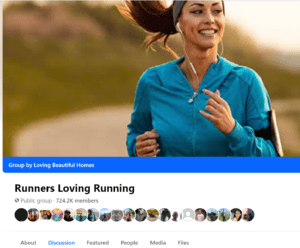What should I drink?
 One of the groups I follow on Facebook is “Runners loving Running”. It’s full of stupid questions.
One of the groups I follow on Facebook is “Runners loving Running”. It’s full of stupid questions.
Ok…OK…I hear you groaning…they are not stupid questions, they just seem stupid to me. So that makes me a stupid observer.
They ask things that are unanswerable:
- What kind of shoes should I wear for my first 5K?
- How fast is a good pace?
- What is the best weight for racing?
At first I just thought it was the AI Bots serving up dumb questions to farm comments. Because, let’s face it, if you ask something like, “What’s the best shoe for my 5K?” or “How far should I run?” you’re going to get hundreds of answers. Some of these answers will have no context, like “Brooks” and some will be well meaning experts writing long winded treatise on the art of running and shoe design.
After 3 or 4 of these types of questions I may have commented that these had to be AI Bots. And was kindly reprimanded by the poster that he/he/it was a real person and this was a real question.
My understanding of these questions has changed. They are not dumb questions. They are beginner questions. Beginner questions from people who may not have English as a first language. Beginner questions where they have a question but they don’t really know how to ask it.
In the spirit of round table, I will answer one of these questions.
“What should I drink?”
First, I’m going to assume that this is in the context of running, because otherwise I’ll recommend a good New England Hazy IPA, but be careful of the alcohol content. Generally try to stay under a 7% ABV unless you’re not driving, surrounded by sensible friends and don’t have much to do the next day.
I’m going to assume you mean “What should I drink when I’m running?”
There are a number of discovery questions I would ask if I could. Is this for training, or racing? How far are you planning to go? How fast? What’s the expected weather? What is your planned effort level?
And, since all of these questions depend on who you are and how your machine behaves, I would ask what you normally drink and eat and how that interacts with your gut?
So, as you see, you, in your naiveness, you have asked an unanswerable question. Because we have to make a bunch of assumptions to answer it.
Let’s start simple. Do you need to drink anything? It really depends on your fitness, your current state, the weather and your experience.
In general, if you are going to be out running for less than an hour you can probably get away with not drinking anything at all. Unless you’re going into the run dehydrated to begin with or you’re in Death Valley, it is not going to kill you. Probably. Because I don’t know you and you may have some inbred thirst condition.
If the question is ‘how much to drink when running?’ then you need to know your sweat rate. Your sweat rate is how much you sweat over a given period of time.
How do you measure this?
Simple, you weight yourself before you run, then weigh yourself after, adjusting for anything you may have drunk in between, and the difference is your sweat rate for that weather and effort level.
If you want to control the experiment, do it in the gym on the treadmill at room temperature.
For me the answer is about 16 oz per hour if I’m working hard. Which is a little bit less than 500ML.
If it’s hotter I may sweat twice that rate. If it’s colder half.
So, If I was planning a 3 hour outing I’m going to need 1-2 liters of water.
What to drink is really a personal preference question. The industry will push you to believe that you need to power down gallons of sicky-sweet sports drinks to get that performance. You can use those if you like. They do give you a little sugar boost with your water.
The one-hour rule applies here as well. There’s just not enough time for any fuel to impact your race in that short a time. Fueling is for longer runs. And the type of fueling is going to change depending on what the purpose of the workout is. If it’s an easy, bas-building run you may just need some water.
These sports drinks are more appropriate for shorter distances. Then will tend to give you a sore stomach over the long haul.
If you are going longer there are other drinks with simpler sugars and protein and electrolytes that are designed for fueling runners that you can tap into. Remember, plants love electrolytes.
Many runners will only drink water and get their fuel from other food sources. The older I get the more I gravitate to whole food as a source of energy.
Part of the joy of running is that you get to figure all this out as part of your journey. You get to experiment with different things and find what works for you. And what works for you will change over time.
Who knows? You may be that person who loves a good fried clam milkshake for your hot runs.
I only made that mistake once.
